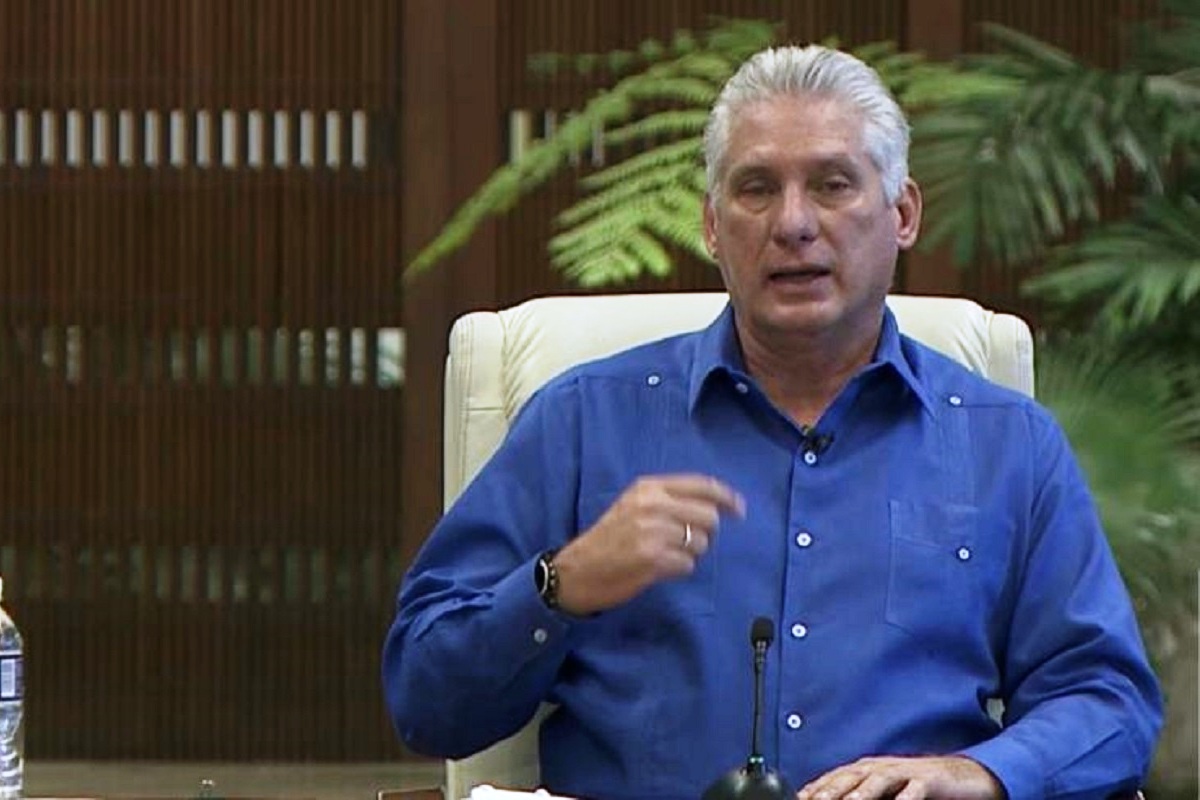Amp up your mixologist game
We all have second thoughts about going outside during the scorching summer months. But it shouldn't stop you from trying out the drink you've been eyeing.
The decision has been greeted with derision, with a critic tweeting, “Blood wasn’t spilled on Cuban streets in order to import a few extra suitcases.”

(Image: (Twitter/@SanctiSpiritus1)
Cuba is in crisis, prompting the nation’s President, Miguel Daz-Canel, to admit in a rare moment of candour for a Communist dispensation that the government in Havana has to share the blame for the current bout of street protests. The people have taken to the streets to protest against the country’s economic crisis and the government’s response to the coronavirus pandemic, in one of the largest demonstrations that has roiled Cuba in decades.
The rallies, widely viewed as astonishing for a country that is known to muzzle dissent, were ignited by the economic crisis, exacerbated by the pandemic. President Daz-Canel hit the bull’s eye on Thursday when thousands of Cubans took to the streets shouting “Freedom” in cities around the country to protest against food and medicine shortages, in a remarkable eruption of discontent not witnessed in nearly 30 years.
The establishment palpably had its back to the wall as thousands marched through San Antonio de los Baños, south-west of Havana, with videos streaming live on Facebook for nearly an hour before they suddenly disappeared. Hundreds of people also gathered in Havana, where a heavy police presence preceded their arrival.
Advertisement
The groundswell of discontent almost across the country was poignantly summed up during a protest filmed in the province of Artemisa, in the island’s west ~ “The people are dying of hunger! Our children are dying of hunger!” The street demonstrations are but a symptom of the overwhelming malaise that plagues what was once Fidel Castro’s proud boast, one that had at a particular stage of the narrative even alarmed the United States of America.
It is a measure of the economic blight that a video showed people looting from one of the much-detested governmentrun stores, which sell what they call “wildly overpriced” items in currencies most Cubans do not possess. In a country known for repressive crackdowns on dissent, the rallies were widely viewed as astonishing.
Activists and analysts said it was the first time that so many people had openly protested against the Communist government since the so-called Maleconazo uprising, which exploded in the summer of 1994 into a huge wave of Cubans leaving the country by sea. The crisis is enormous.
Very pertinently has President Daz-Canel remarked in a remarkable expression of self-criticism ~ “We have to gain experience from the disturbances.” But the protests have also led to dozens of arrests, at least one death and internet blackouts. As an immediate fallout of Sunday’s protests, the government has announced lifting of import duties on food, medicines and essentials brought in by travellers from outside the country.
The decision has been greeted with derision, with a critic tweeting, “Blood wasn’t spilled on Cuban streets in order to import a few extra suitcases.”
Advertisement